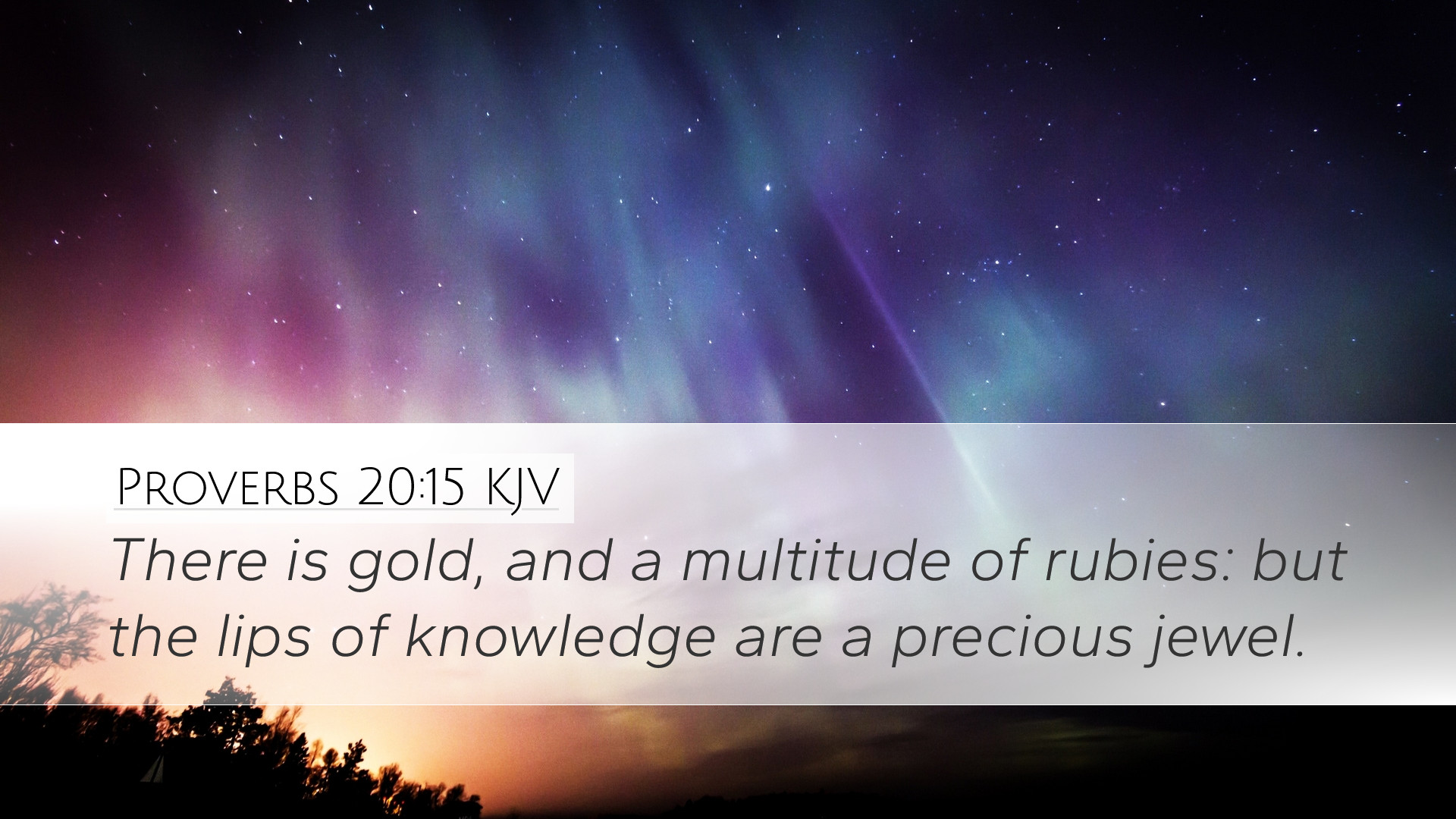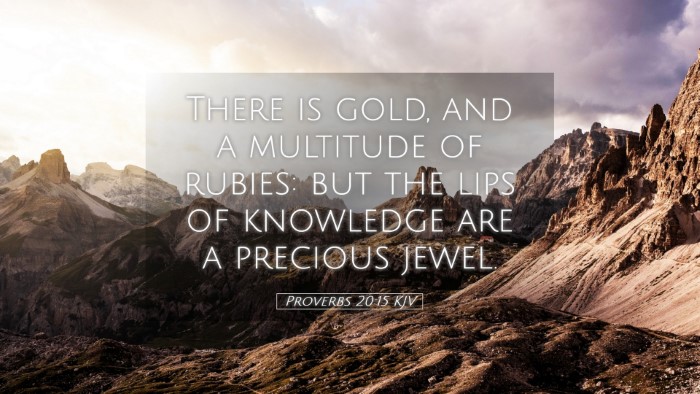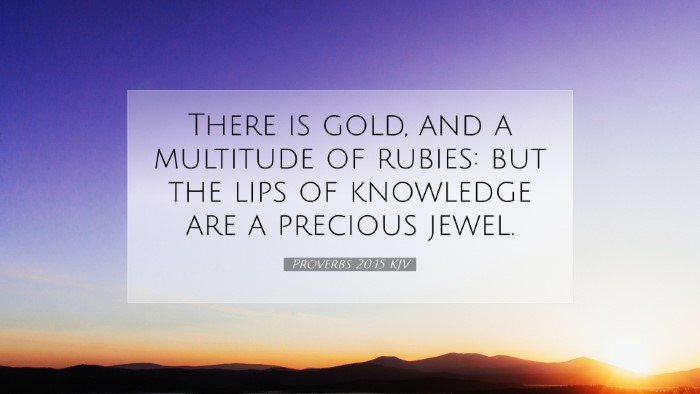Commentary on Proverbs 20:15
Verse: "There is gold, and a multitude of rubies: but the lips of knowledge are a precious jewel."
Introduction
Proverbs 20:15 presents a profound contrast between material wealth and the value of wisdom. This verse highlights the superiority of knowledge, particularly knowledge that is spoken with intention and clarity. As we explore this verse, we will draw insights from esteemed public domain commentaries by Matthew Henry, Albert Barnes, and Adam Clarke, providing a rich understanding suitable for pastors, students, theologians, and biblical scholars.
Textual Analysis
In this verse, the author presents two sides of value - the tangible wealth represented by gold and rubies and the intangible wealth represented by knowledge. The comparison invites contemplation on what truly enriches life.
- Gold and Rubies: The verse mentions gold and a multitude of rubies, which symbolize wealth and material prosperity. The abundance of these precious stones signifies earthly treasures that are highly sought after by many.
- Lips of Knowledge: In contrast, the "lips of knowledge" represent wisdom and the ability to impart understanding. This metaphor emphasizes that there is a value in speaking knowledge that surpasses even the most precious earthly treasures.
Insights from Matthew Henry
Matthew Henry emphasizes the enduring nature of wisdom compared to temporal wealth. He articulates that while gold and rubies may gain the attention of the world, they are ultimately fleeting.
Henry contrasts worldly wealth with the value of knowledge, asserting that wise words can elevate and transform one's life. He notes that true wisdom has practical applications, guiding individuals in moral and ethical decision-making.
Insights from Albert Barnes
Albert Barnes presents an expository view of the verse, underscoring the importance of wisdom and knowledge in human interactions. He asserts that while wealth can be amassed, the words of the wise have a lasting impact on society.
Barnes highlights the need for discernment in valuing what is truly important in life. He points out that in many cases, those who possess knowledge and understanding can navigate life’s complexities better than those who only pursue material wealth.
Insights from Adam Clarke
Adam Clarke offers an analytical interpretation, stating that the phrase "lips of knowledge" suggests a communicative wisdom that is essential for nurturing relationships and fostering community.
Clarke further expounds on the idea that knowledge should lead to understanding and application in daily life. He warns against the seductive nature of material possessions, urging readers to place a higher priority on the pursuit of wisdom.
Theological Reflection
This verse challenges the reader to reflect on their values. Is the pursuit of knowledge and wisdom prioritized over the acquisition of wealth? The contrast prompts a reevaluation of personal and communal priorities in light of the teachings of the Scriptures.
In Christian theology, wisdom is often associated with the fear of the Lord, as seen in Proverbs 1:7, which states that the fear of the Lord is the beginning of knowledge. This verse correlates that the true worth of wisdom shines brightest when aligned with divine understanding.
Application for Life
For pastors preaching this verse, it offers a rich avenue of exploration regarding the importance of wisdom in ministry. Encouraging congregations to seek knowledge can guide them towards more profound engagement in their faith and community.
Students and scholars are reminded of the necessity of a solid foundation in wisdom in their studies, which can surpass the mere accumulation of facts or degrees. Wisdom allows for discernment in applying knowledge effectively in various circumstances.
The call to value knowledge over material wealth resonates in a modern context where societal pressures often equate success with financial prosperity. It serves as a reminder that lasting impact stems from wise words and informed actions.
Conclusion
Proverbs 20:15 encapsulates a critical lesson for believers: while gold and precious stones may dazzle the eyes, the "lips of knowledge" represent treasures that enrich the soul. The insights drawn from influential commentaries reveal the timeless relevance of this verse, encouraging a deeper pursuit of wisdom that transcends materialism.
As we internalize this message, may we strive to embody the wisdom that not only uplifts ourselves but also positively influences those around us.


